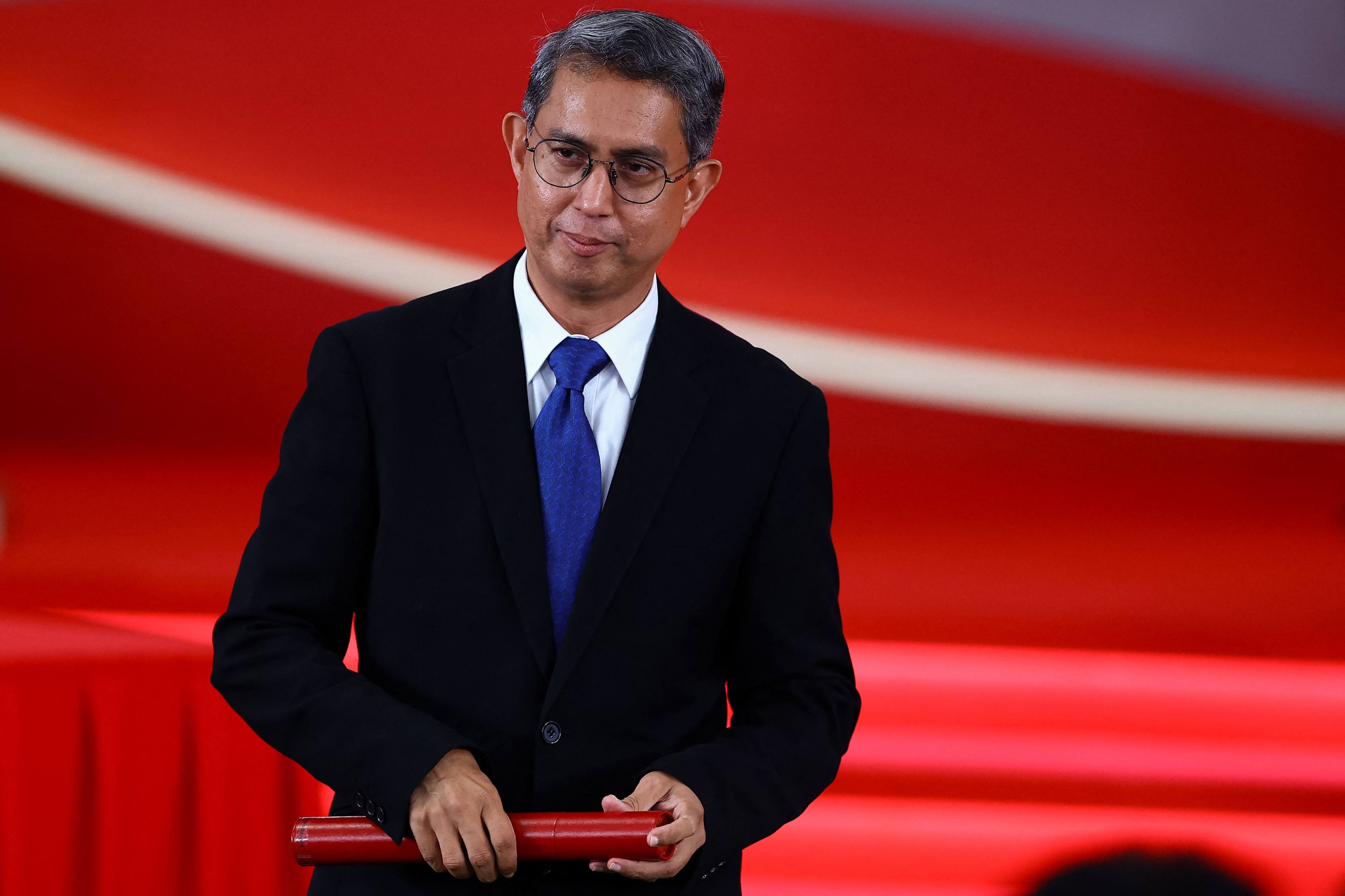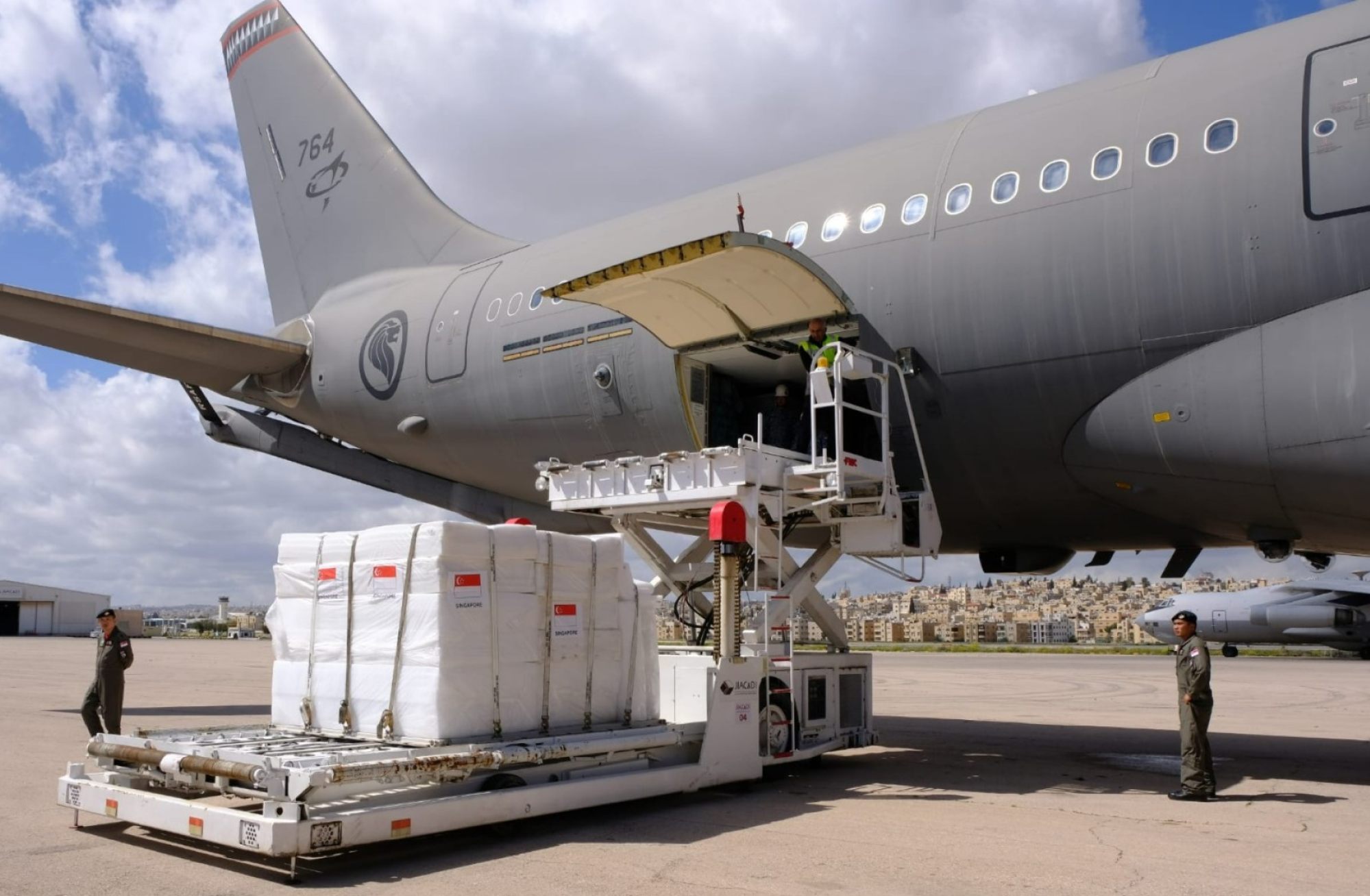Singapore’s new Muslim affairs minister lays down firm stance on Gaza issue
Faishal Ibrahim takes a tougher position than his predecessor in defending former president Halimah Yaacob against the Critical Spectator

Singapore’s newly appointed acting minister-in-charge of Muslim affairs began his first hours in the role by condemning a controversial social-media commentator for attacking former president Halimah Yacob’s support for Palestinians in Gaza – taking a markedly firmer stance than his predecessor.
“Many in our Muslim community, as well as Singaporeans from all walks of life, continue to feel deeply about the tragedy unfolding in Palestine. That includes our former president, Mdm Halimah Yacob, whose views are widely respected across our communities,” wrote Muhammad Faishal Ibrahim in a social media post on Friday night, just hours after being sworn into office.
“In times like these, we need more understanding, not division,” he urged. “We must never allow dismissive or divisive rhetoric – local or foreign – to erode the mutual respect and unity we have worked so hard to build in our multicultural society.”
Halimah was a “deeply respected national figure”, he said, adding that he shared her sentiments.
This was in response to a post by the Critical Spectator, Polish national Michael Petraeus, known for his pro-establishment and often inflammatory commentary on political and social issues.
On Friday, Petraeus reposted a screenshot of an article about Halimah’s remarks on the war in Gaza – where she urged for more to speak up about the violations of international humanitarian laws – and sought to point out what he saw as a double standard.
“I don’t think Palestinians deserve special treatment or care compared to, say, the Sudanese, Libyans, Yemenis or Burmese?” he wrote.
“And yet I’ve tried searching if Mdm Halimah expressed her horror and grief about the torment of millions of people in these and other countries – and I, sadly, found nothing.”
He went on to argue that the plight of the Palestinians was “caused entirely by Palestinians themselves, who started another assault on Israel that only brought widespread destruction on themselves in response”.
This was not the first time Halimah, a former unionist and lawyer who was Singapore’s president from 2017 to 2023, had spoken up about the war in Gaza.
“The degradation of the human soul is so apparent when food trucks promised safe passage into Gaza were bombed. Images of [Israel Defense Forces] soldiers taking selfies, dancing, laughing and exchanging toasts after blasting to smithereens Palestinian homes are seared into our collective memories,” she wrote in a social-media post last February.
Singapore’s stance on Gaza
This comes shortly after the city state’s foreign ministry issued a statement on the war, where it reiterated its support for a negotiated two-state solution and urged against “unilateral actions that hinder the peace process”.
“The conflict cannot be resolved by the permanent forced displacement of Palestinian civilians,” it said on Tuesday.

Since the start of the war in October 2023, Singapore has conveyed six tranches of humanitarian aid to Gaza, its foreign minister said in April.
In Faishal’s social media post on Friday, he said the Singapore government had not been “silent” on the issue, pointing out that it had consistently called for a humanitarian ceasefire, protection of civilian lives, and supported the Palestinians’ right to a homeland.
“I’m gravely concerned about the recent remarks made by Critical Spectator. While it is valid to draw attention to suffering in other parts of the world, we should reject any statement that minimises the suffering of Palestinians,” he said.
He added that he had also made his views on the war public previously, citing a recent podcast recording where he described Israel’s actions in Gaza as “oppressive and unacceptable”.
Hours before the post, Faishal was sworn in as the acting minister-in-charge of Muslim affairs, taking over the position from Masagos Zulkifli, who held the post for seven years. He was also sworn in as senior minister of state in the Ministry of Home Affairs.
The switch came shortly after the poor electoral showing by the People’s Action Party (PAP) team in the electoral division of Tampines, which was helmed by Masagos.
His five-person team in Tampines narrowly defeated the Workers’ Party (WP) team, headed by veteran opposition politician Faisal Manap, in a rare four-cornered fight, securing just 52.02 per cent of the vote.
Masagos has faced criticism for what some see as a weak stance on the Israel-Gaza war – most recently after he issued a delayed response to a former Nominated Member of Parliament who said online that he would sponsor flights for members of a Gaza activist group “only if they never come back”.
Meanwhile, Petraeus had earlier this week found himself at the centre of public scrutiny for his comments about the WP’s picks for Non-Constituency Members of Parliament, which were announced on Monday.
“[Critical Spectator] has continued to make posts about local politics aimed at Singaporeans – and quite clearly he is not beyond bringing issues of race and religion into his game,” wrote Yeoh Lian Chuan, a lawyer, in a social media post.
At a press conference midway through the May 3 election campaign, Prime Minister Lawrence Wong was asked whether Petraeus’ page raised concerns about foreign interference, following the government’s decision to block Facebook posts by two Malaysian politicians for attempting to influence the poll.
While the city state had rules to ensure the outcome of elections be left solely to Singaporeans, foreigners, such as journalists, were still able to write about elections, Wong said in response.
“But when foreigners take a position on an issue or a candidate and push for an issue or candidate – one over the other – and especially when it is about race and religion. And you start mixing race and religion into politics – that crosses the line.”